Greenhouse Farming in Kenya
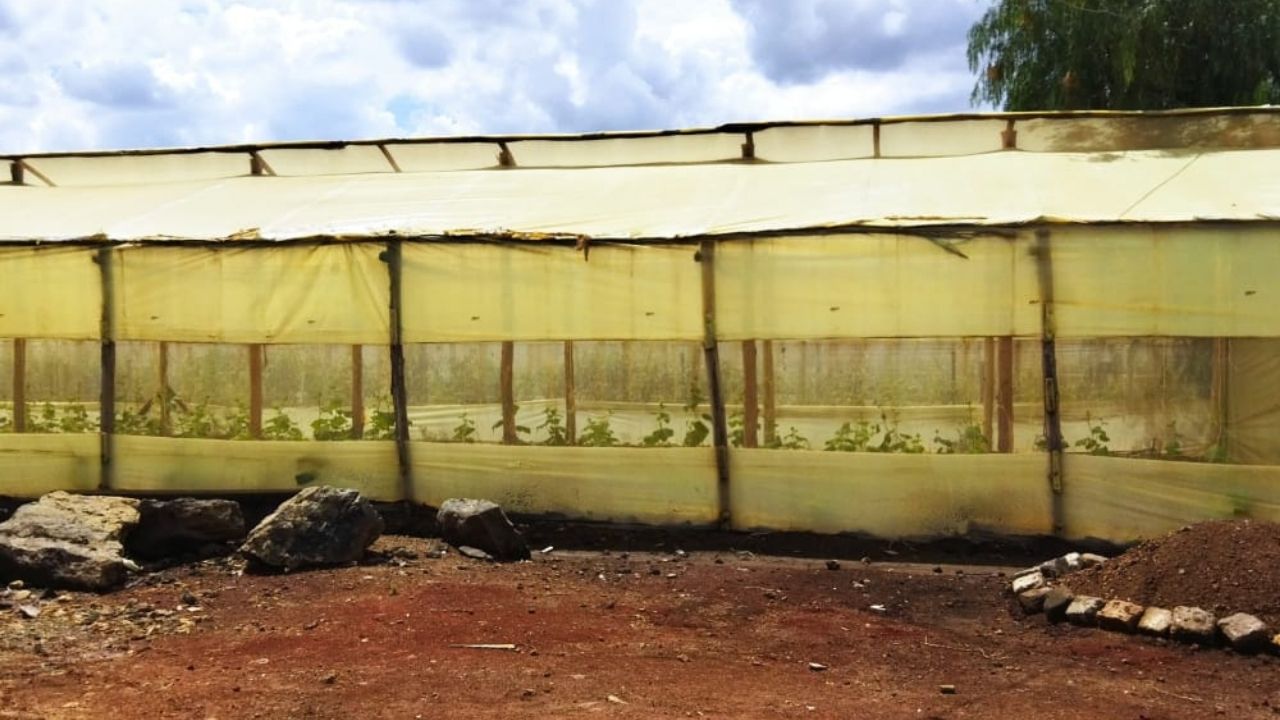
Greenhouse farming is the cultivation of plants in a framed or inflated structure. It uses a transparent or translucent substance to cover the structure. There is regulation and control of the climatic parameters of the environment. For air ventilation, a net-like material is placed on the side. Flowers, fruits, and vegetables are the plants grown here.
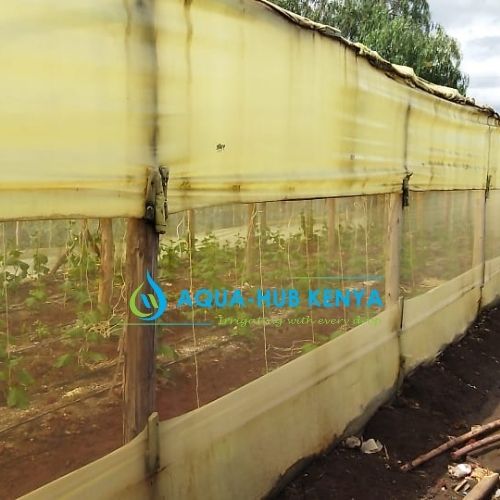
Greenhouse farming Kenya
Any innovative and effective way of farming may be rapidly embraced in a country that views agriculture as the most readily available economic activity and source of wealth development. This helps to explain why greenhouse farming is growing more popular across the country. Agriculture’s popularity can also be related to people’s reliance on it as a serious venture for those looking to make money.
There is a compel for farmers in the country to explore into greenhouse farming due to unexpected weather fluctuations and bad weather conditions that are normally detrimental to most crops.
It is the use of a metal or wood greenhouse to create strong, high-quality, and uniform growth in crops and flowers. This is accomplished by keeping the warmth required by the plant for rapid growth within the greenhouse’s superb microclimate.
Benefits of Greenhouse Farming
Production increase
Greenhouse farming can boost agricultural yields. This is due to your ability to establish the ideal environment conditions for plant development. In comparison to cultivating crops in an open field, you can grow more plants per square foot.
All year round production
A greenhouse is a relatively self-contained climate-controlled environment that allows crops to be grown all year rather than just seasonally. High-quality crops may be cultivated in harsh winter cold or extreme summer heat if you do have the correct technologies to generate the right environment inside the greenhouse.
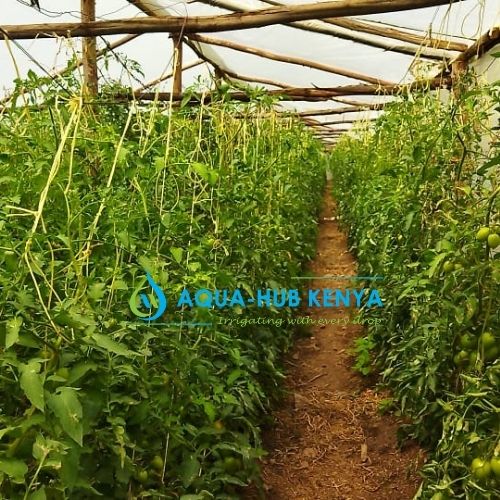
Profit maximization
According to studies, crop revenues per square foot might be two to three times higher. This is when greenhouse farming is used instead of open-field farming. It’s also when you combine it with other techniques like hydroponics. You may generate less waste by using resources more efficiently, which can lead to higher earnings.
Production risk minimization
You can keep rats away from your crops by growing them in a greenhouse. You can always control what comes in and what leaves a greenhouse. Additionally, this atmosphere will aid in the protection of your crops from the elements, pests, and disease. You can reduce the likelihood of pests and insects harming your plants.
Prevention of pest and diseases
Greenhouses can help to keep pests and illnesses at bay. Only essential personnel should be allowed in the confined space. There are also fewer individuals entering and exiting. This implies there’s a lower chance of undesired factors getting close to the crops. It also enables you to isolate issues if they arise. Moving damaged or infected plants away from the rest of the crop will help you salvage the harvest.
Stability and Security increase
The greenhouse’s sheltered environment provides a safe and stable workplace because outside factors do not always affect plants or personnel.
A wide variety
Vegetable prices fluctuate depending on demand, availability, and production techniques as they come in and out of season. If you invest in a greenhouse, however, you may provide a broad selection of vegetables and fruit outside the growing season. When the market is in short supply, you can increase availability for your consumers in this method. Greenhouse farming also allows you to cultivate flowers and novel crops that would otherwise be impossible to grow in your environment. As a result, your crops will have the optimum growth conditions possible.
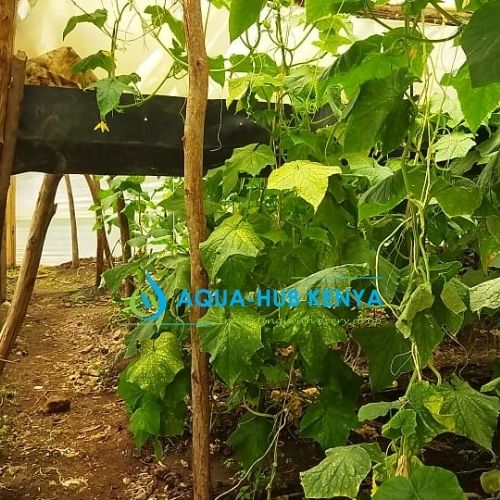
Plants that thrive and profit in a greenhouse
Vegetables are the crops that thrive in greenhouses in Kenya. They are the crops preferred by the majority of Kenyan greenhouse farmers. Before planting any veggies in a greenhouse, consider market availability, produce price, transport cost, and shelf life. In Kenya, greenhouse farming produces high-quality veggies with no chemical residue. Kenyan greenhouses cultivate the following vegetables:
- Tomatoes
- Capsicums
- Strawberry
- Cucumber
- Kales (mflame f1)
- Indigenous vegetable
Flowers, mushrooms, herbs, and strawberries are among the other crops. High yields are guaranteed when crops are grown in a greenhouse. This is because drip irrigation is possible, and the presence of shade provides little evaporation and no excessive heat.
How to start greenhouse farming in Kenya
In case you have interest in agriculture, starting a greenhouse farming business might be excellent. It is a method of converting our hobby into a source of cash. While developing a commercial greenhouse can be time-consuming and expensive, starting with a tiny greenhouse can save money. You may apply the methods outlined here to start a successful greenhouse farming business in Kenya.
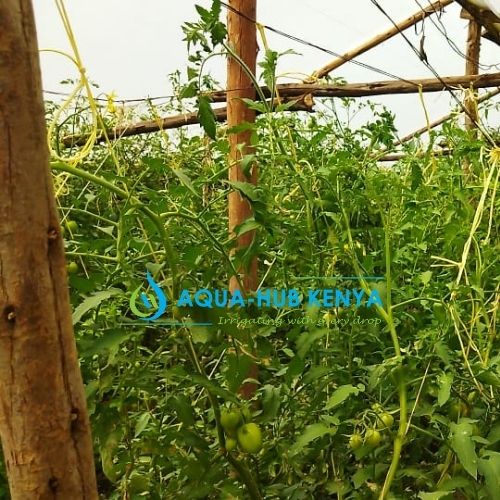
- Investigate the size of your local market: This will help you assess whether the market can support an extra greenhouse firm. It also assists in determining the level of competition.
- Determine your preferred crops and the size of your operation: Consider crops that are in short supply in order to profit on the demand.
- Learn about the laws that govern this type of agriculture: This will give you peace of mind that no one will be watching you.
- Create the greenhouse: Solar greenhouses are worth considering since they are inexpensive. Also, make sure you have ample ventilation. The irrigation system, wire shelving, and fertilizer system will next be installed.
Because the focus is to give a one-stop-shop for all irrigation and micro-irrigation services in Kenya and Africa at large, Aqua Hub Kenya offers the best and most economical Greenhouse & Shade Houses in Kenya. We work with farmers from all across our counties to provide the most advanced farming practices possible through greenhouse farming. The majority of our clients take advantage of the best-rated marketplaces for fresh products from their farms.
